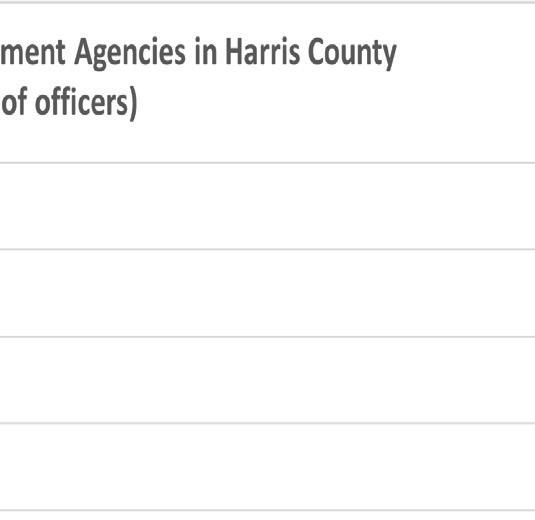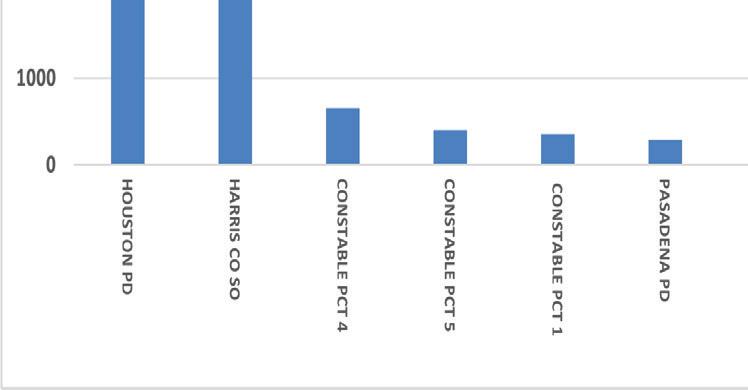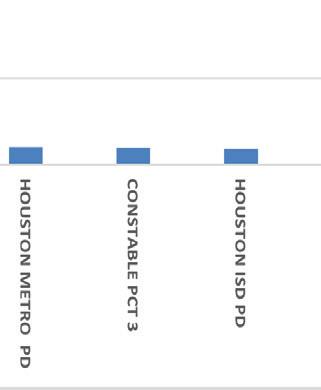











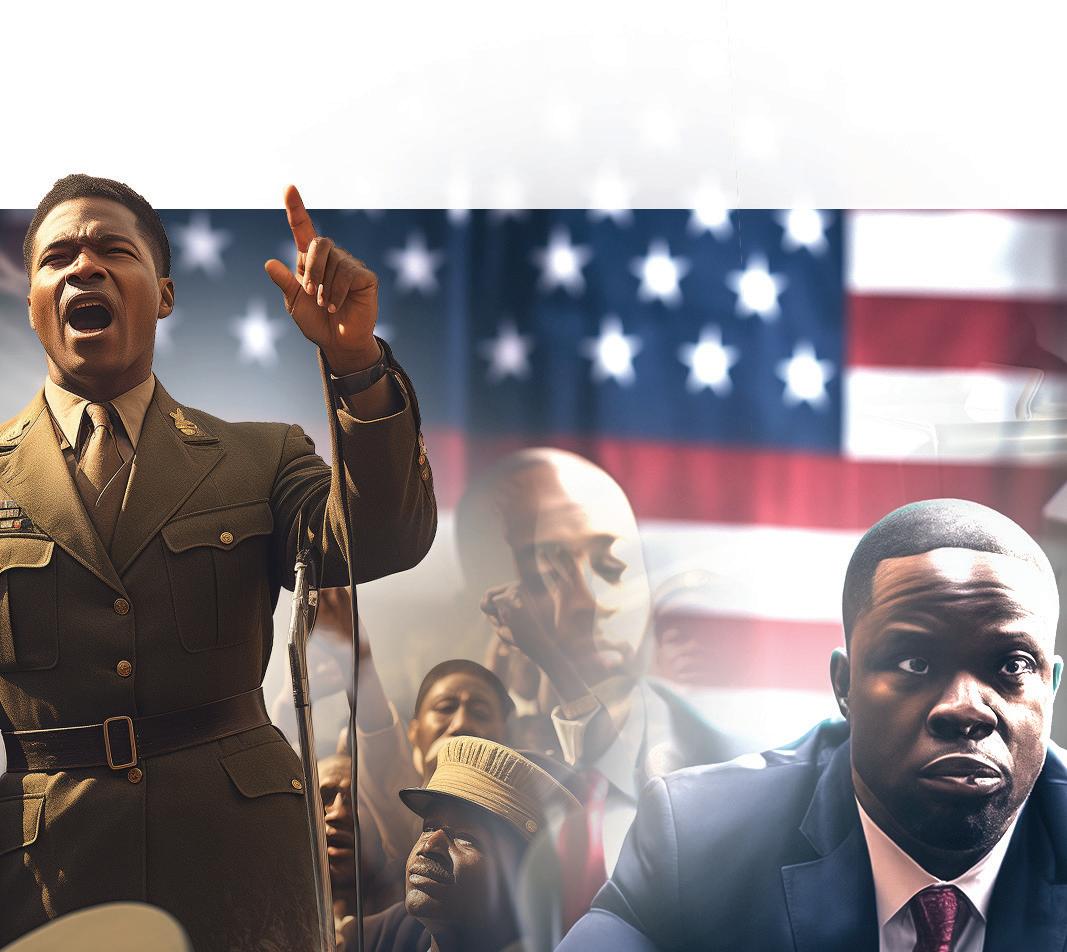

“Addressing Current & Historical Realities Affecting Our Community”



By: Roy Douglas Malonson
What’s the real di erence between a democracy and a dictatorship—and does it depend on who you are in America?
For Black Americans, that question has never been theoretical. It’s personal. It’s historical. And in today’s divided political climate, it’s urgent. e events of January 6, 2021, when an overwhelmingly white mob stormed the U.S. Capitol to overturn the results of a presidential election, forced the nation to reckon with a truth Black communities have long understood: democracy in America has always operated on a double standard.
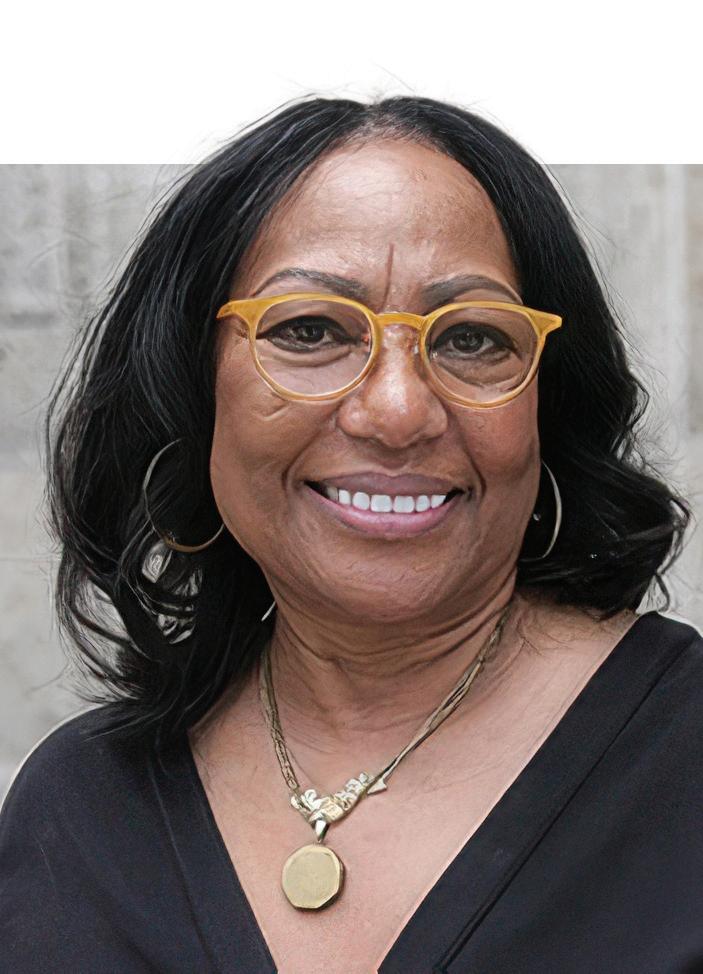
“It has been a true honor to serve Mayor Whitmire and the City of Houston,” said Newport. “I remain fully committed to the mayor’s vision for the city and deeply believe in this administration’s potential to drive positive change. I’m grateful to the exceptional team, colleagues, and city employees who have allowed me to serve alongside them. Due to personal obligations to my family, I must now serve in a different capacity—but the mayor knows he can count on me to support him and the city at any time, day or night.”
To succeed Newport, Mayor Whitmire has appointed Cynthia Wilson as the new Chief of Staff. Since the beginning of Whitmire’s term, Wilson has served as Senior Advisor on operations and quality of life issues.
When Black people protest against injustice— whether police brutality, voter suppression, or systemic racism—they are met with riot gear, rubber bullets, and mass arrests. But when mostly white rioters violently breached the Capitol, many were allowed to walk away without consequences. e di erence in treatment was not just about politics— it was about privilege. And it exposed how quickly democratic ideals can slip toward dictatorship when power is protected by force instead of votes.
Donald Trump’s refusal to accept the outcome of the Democracy on pg. 3
“Cynthia and I go back many years, including her time as a school administrator in my Texas Senate District,” said Mayor Whitmire. “She came out of retirement to join my administration and has been a trusted presence in my office during every major decision. I have complete confidence in her leadership and trust her to effectively manage our city’s operations and challenges while advancing our priorities. Her extensive experience and dedication are exactly what we need.”
Wilson’s career includes roles as District Superintendent for Houston ISD, Superintendent of Schools in the






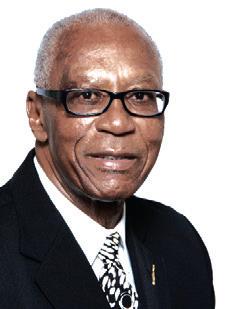
Bobby Mills, Ph.D.
erned. Leadership mentality is about values and honor, and more importantly: “the fear of the Lord is the instruction of wisdom, and before honour is humility.”
Values dictate institutional structures as well as lifestyles. More importantly, values are the belief systems that individuals have concerning what is right and what is wrong. Therefore, values help shape institutional structures, personality identities, as well as personal lifestyle choices. For example, valuing Human Rights and Civil Rights are core values of America’s democratic system of governance based upon spiritual-moral truths and constitutional rights. Thus, America’s governmental system is instituted to country, but he does have a





secure God-given Natural Rights buttressed by free will consent of the gov-



(Proverbs 15: 33). President Trump’s leadership mentality is about me, myself, and I. This is why President Trump’s governing policies are devastatingly bad for America; but good for Russia and China, because they create internal confusion and socio-economic and political conflicts in American society. Can America achieve a more perfect union post-Trump Administration? Individuals who use divisive rhetoric often lack a forward-looking perspective, which is important for ensuring the well-being and development of future generations. President Trump has absolutely no vision for the future of the country, but he does have a vision for his nuclear family’s wealth and well-being. America, we are witnessing organized governmental wickedness: the golden rule versus the golden calf?
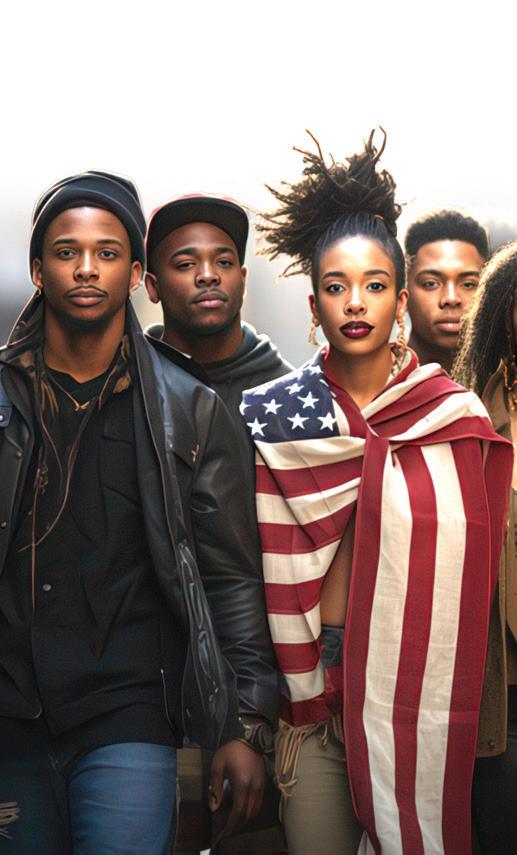
ily’s wealth and well-being. America, we are witnessing organized governmen-

President’s Trump’s obscene leadership mentality and behavior is off-the-chart. Therefore, we are witnessing first-hand the balkanization of American society as well as the politicizing of the military system. President
Values on pg. 3
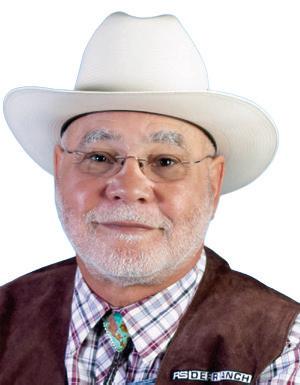

Roy Douglas Malonson, Publisher
Everybody’s clutching their pearls about “American democracy being under attack.”
January 6. Trump. Authoritarianism. Dictatorship. But let’s be honest—Black folks in America have been living under a dictatorship since day one. Let’s talk facts. When the Constitution was signed, we were property. No vote. No voice. No rights. at wasn’t democracy. at was oppression backed by law. And even a er so-called freedom, we got Jim Crow, lynch mobs, redlining, police brutality, voter suppression, and mass incarceration. at’s dictatorship with a ag draped over it. Now in 2025, folks are panicking because the threat of dictatorship nally knocked on white America’s door. But Black people? We’ve had that knock, kick, and raid

for centuries. e trauma is generational. e surveillance is nonstop. e punishment is swi . When we protest, we get tanks. When they riot, they get sympathy. So forgive us if we’re not shocked. We’ve marched through every administration. We’ve survived under Republicans and Democrats. Because the system isn’t broken—it was built like this. Yes, we should care about democracy. Yes, we should ght for justice. But let’s not act like this “slide into dictatorship” is new. For us, it’s just being televised more clearly now. What’s the big deal? e big deal is now everybody else is feeling what we’ve been screaming for centuries. Maybe now, they’ll listen. Maybe now, they’ll act. But Black folks? We’ve been surviving the impossible. And we’ll keep doing it—with or without their democracy. So while America debates what democracy should be, we’ll keep doing what we always do: resist, rebuild, and rise. Because we never had the luxury of believing the system worked in the rst place.


2020 election wasn’t just political de ance—it was a direct challenge to the foundation of American democracy. He pushed lies about voter fraud, pressured o cials to “ nd votes,” and told his supporters to “ ght like hell.” at call led to violence. Yet even a er the attack, many downplayed what happened. Some called it a protest. Others blamed “Antifa.” But Black Americans knew exactly what it was: an attempted power grab disguised as patriotism. Now in 2025, with Trump once again a dominant political gure, the threat of authoritarianism feels even more real— especially a er the recent wave of protests in Los Angeles. is time, the unrest didn’t begin with a police shooting, but with large-scale ICE raids. Around June 6, federal agents swept through the Fashion District, Home Depot, and other areas in downtown L.A., detaining more than 100 people. Witnesses described federal o cers using stun grenades during chaotic scu es. e community response was swi and angry.
In the days that followed, downtown L.A. saw major protests, some clashes with police, and limited looting. But instead of addressing the roots of the unrest, the government responded with curfews, militarization, and
mass arrests. Mayor Karen Bass declared a state of emergency and imposed a strict nightly curfew from 8 p.m. to 6 a.m. covering a one-mile radius. Police arrested over 400 people in a single night, with dozens more detained for curfew violations and “unlawful assembly” throughout the week.
President Trump— using familiar language—called the protests “insurrectionist” and deployed more than 2,000 National Guard troops and 700 Marines to control the situation. The move drew criticism and legal pushback from Governor Gavin Newsom, but federal forces arrived anyway. The federal occupation of a major U.S. city, against the wishes of local leaders, is the kind of power play more commonly associated with dictatorships—not democracies. And once again, the contrast was sharp. When Trump supporters attacked the Capitol, federal troops were delayed. Police presence was minimal. Arrests came slowly, and some charges were reduced or dropped altogether. But when Black and Latino communities rose up in L.A., the government wasted no time bringing in the military. e same story played out in 1992, when the acquittal of o cers in the Rodney King beating sparked outrage across Los Angeles. Back then, the
National Guard ooded the streets. In 2020, following the murder of George Floyd, peaceful protests were met with tear gas, rubber bullets, and media narratives that labeled protestors “thugs” and “anarchists.” And now in 2025, we’re seeing history repeat itself.
So what’s the di erence between dictatorship and democracy? On paper, it’s about power and consent. But in practice, especially in Black America, the difference has always come down to enforcement—and who benefits from the rules. When law and order serve power, not people, democracy becomes a performance. When elections are questioned only when Black and Brown voters show up in record numbers, democracy becomes conditional. And when soldiers are sent in to silence dissent, we’re no longer asking “if” authoritarianism is rising—we’re witnessing it.
Black Americans have never had the luxury of assuming democracy would protect us. We’ve had to fight for every right, every vote, every breath. That’s why we must keep asking the hard questions. Not just what democracy looks like—but who it really works for. Because if democracy only serves some, and punishes others for speaking up, it’s not democracy at all. And we know exactly what comes next.
Trump is attempting to centralize absolute power in the Executive Branch. Unfortunately, President Trump does not see three branches of government as equal. Question: where is the counter narrative from The GOP to the prevailing insanity of the MAGA-Cult? The Grand Ole Party is not so grand, because the GOP refuses to acknowledge the spiritual-moral truths written in the Preamble and the U. S. Constitution; that all individuals are created equal, as defined by God-given natural rights. Hence, government is instituted of individuals to secure Natural Rights. Will
someone please tell President Trump and his MAGA-Cult Followers that wisdom is mightier that physical force. Love is mightier than hate. Truths mightier than lies. More importantly, God is light, and there is no darkness in him. America, there is no evil in God. God only hates sin, and sin is sin. No little sin or big sin. This is why all individuals must learn to live in the light (truth) of God, because: “God is light, and in him is no darkness at all. If we say that we have fellowship with him, and walk in darkness, we lie, and do not the truth: but if we walk in the light, as he is in the light, we have fellowship one with
another, and the blood of Jesus Christ his Son cleanseth us from all sin. If we say we have no sin, we deceive ourselves, and the truth is not in us.” (1 John 1: 6-8). Christian Right Evangelicals racism, sexism, classism, and Trumpism is sin. God hates sin. Therefore, when Christians deny the reality of sin, they cannot claim to belong to God. Therefore, if individuals claim to be Holy and say they have no sin, they lie. Get Right With God; and live by His truth that equal is equal, not more or less equal. We are in a spiritual battle for the constitutional soul of America.





HCTRA has congestion solutions for the region.






1705. e Virginia Slave Codes are passed, in direct response to Bacon’s Rebellion.
1776. e Declaration of Independence is signed.
1955. Rosa Parks refuses to give up her seat on a city bus to a white man, and the Montgomery bus boycott ensues.
1957. e Little Rock Nine become the rst African American students to attend the previously allwhite Central High School in Little Rock, Arkansas.

1960. Greensboro University sit-ins spark various forms of peaceful protest against segregation across the United States.
1961. e freedom ride from Washington D.C. to New Orleans occurs.



Reedy Chapel AME Church expresses enthusiasm over former President Joe Biden’s visit on Juneteenth. This year, Former President Joe Biden visit Reedy Chapel AME church and be a part of the celebration.
San Antonio Food Bank sues over meals provided to New Braunfels nonprofit. The San Antonio Food Bank, which distributes millions of pounds of free food each year to those in need, is taking legal action against a New Braunfels nonprofit, alleging it failed to pay for food it received.

Texas allocates $20 billion for water infrastructure projects, subject to voter approval. Governor Greg Abbott signed landmark water infrastructure legislation on Wednesday, setting a plan to invest more than $20 billion into the state’s water fund over the next 22 years. The signing took place at SIMFLO, a pump manufacturing plant in Lubbock.
The first premium bus rolled out from its new terminal at The Woodlands Waterway Marriott and Conference Center Friday morning and will make multiple trips during the week between the two cities.


Fredi Washington (1903–1994) was a pioneering African American actress, dancer, and civil rights activist whose career spanned the Harlem Renaissance and early Hollywood. Born in Savannah, Georgia, she became one of the first Black actresses to gain recognition in films and challenge racism in Hollywood. Her most notable role was as Peola in the 1934 film Imitation of Life, where she portrayed a light-skinned Black woman who chooses to pass as white—a role that mirrored her own experiences with colorism in the industry.
By: Michael Moore
I’m Trying To Learn!
Imagine an America where the brilliance of African Americans wasn’t systemically silenced, ignored, or stolen. A nation that didn’t shackle its future by chaining its most innovative minds to the weight of racism and inequality. If history had taken a more just path, America could have been not just a great nation — but the greatest, by far.
From the cotton elds to the tech labs, African Americans have been the bedrock of American innovation. e nation was literally built on their backs — through forced labor, yes — but also through raw creativity, resilience, and genius. From tra c lights (Garrett Morgan), to home security systems (Marie Van Brittan Brown), to rock and roll (Little Richard), African Americans have continually shaped America’s infrastructure, safety, and culture. Yet their contributions are o en minimized, whitewashed, or buried altogether.
While America wrangles with racial inequities at home, many so-called “ ird World” countries are making leaps — not because they have more resources, but because they empower their innovators, regardless of class or color.
Places like Rwanda, Ghana, and parts of Southeast Asia are tapping into the raw intelligence of their people, building smart cities, advanced tech hubs, and
green infrastructure. Why?
Because they understand that innovation knows no race — only opportunity.
If African Americans had been allowed full



Imagine the untapped Black brilliance that could have revolutionized education, healthcare, city planning, or AI development.
And yet, even today, many of America’s brightest African American minds are forced to ght for a seat at the table. Instead of investing in this intellectual goldmine, America continues to overlook, underfund, and suppress.
genius and start exporting it to upli the world?
threat, but as a strategic asset to global progress?

What if African American scientists, educators, engineers, artists, and entrepreneurs were empowered — even incentivized — to lead development projects abroad? To help build sustainable communities in the Caribbean, in Africa, in Latin America, and even in struggling parts of the U.S.?
participation in the American dream from day one, there’s little doubt the U.S. would already be living in a more advanced, equitable future. empowered — even development projects sustainable communities in the Caribbean, in Africa, in Latin America, and even in struggling parts of the U.S.? What if America saw its Black
Which raises the question: When will America stop hoarding its Black

What if America saw its Black citizens not as a
It’s time to shi the narrative. It’s time for America to not just apologize for its past, but to invest in the future African brilliance doesn’t disappear —

Americans have always been capable of leading. A future that could elevate not only this country, but the world. Because suppressed it just nds new soil to grow.




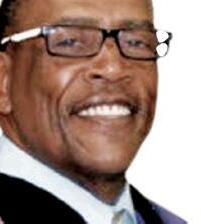
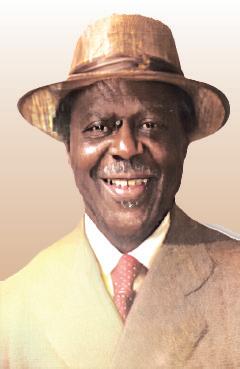



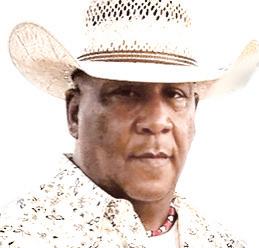





NOTICE TO PROPOSERS
e Houston Independent School District is soliciting Request for Proposals (RFP) via the District’s electronic bidding portal. Proposers may login to view speci cations and submit their responses at the following link https://houstonisd.ionwave.net/ Login.aspx until 2:00 p.m. (CST) Wednesday, July 16, 2025, for the following supplemental solicitation for the following project: RFP 25-05-01 Substitute Teacher Recruitment Services
NOTICE TO PROPOSERS
Request for Proposal will be received by Lone Star College for: RFP #25-06-03 – Managed Detection and Response Services. Electronic submittals due by 3:00PM, ursday, July 17, 2025. Contact: pamela.johnson@lonestar.edu or (832)813-6782. Must Register to Bid: https:// lonestar.ionwave.net/Login.aspx. If registered, please ensure your registration is up to date. For assistance with the on-line registration process, contact MCvendors@lonestar.edu.







Pre-proposal conferences via Microso Teams will be held in conjunction with this RFP. Information regarding dates, times, and a link to join the meeting can be located within the electronic bidding portal under the “Event Details” tab speci c to this solicitation.
NOTICE TO RESPONDENTS:
















Request for Quali cations will be received by Lone Star College for: RFQ #25-06-01 – Facilities and Information Technology Infrastructure Assessment Electronic responses are due by 6:00 PM on 7-11-2025




Contact: Lydia Sterling, Sr Commodity Manager @ Lydia.Sterling@lonestar.edu
Must Register to Bid at: http:// lonestar.ionwave.net/Login.aspx. If registered, please log in to Ion Wave for additional information. For assistance with the online registration process, contact MCVendors@lonestar.edu.










By: Bill King
Spread over Harris County’s 1,777 square miles are 63 di erent law enforcement agencies. at is one law enforcement agency for every 28 square miles. ese agencies employ 12,014 licensed law enforcement o cers (“ocers”) and another 5,385 civilian support sta .1 at is one o cer for every 417 residents of the County.
ese range from the largest, the Houston Police Department with 6,337 employees (of which 5,246 are o cers), to the smallest, the Shore Acres Police Department with 6 o cers. e second largest is the Harris County Sheri ’s O ce (HCSO) with 4,570 employees. However, HCSO has a substantially lower ratio of o cers at 2,049 (44%). I suspect this has to do with the personnel necessary to run the County’s jail.
ere are another 2,174 employees at the Harris County Constable O ces, 1,921 of whom are o cers. Precinct 4 is, by far, the largest at 706.
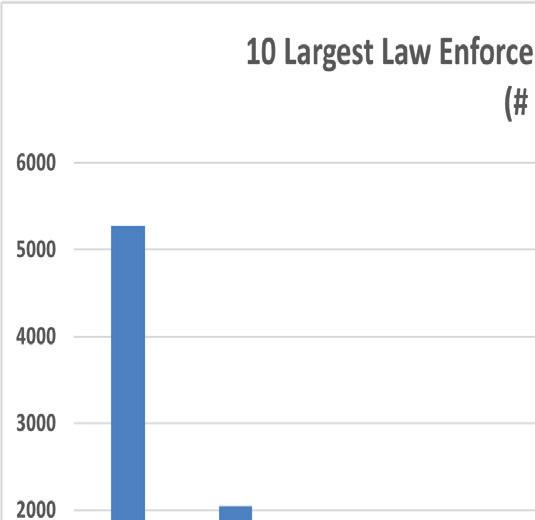
Precinct 1 has the second largest with 490. It is located downtown and has specialized duties related to the courts, resulting in a higher ratio of civilian employees. e precincts with the larger forces are those in the unincorporated parts of the county where there are no municipal police departments.
ere are twenty law enforcement agencies associated with school districts, colleges, and universities.
ese agencies employ 1,853, of which 1,108 are o cers.
e ratio of total employees to o cers is unusual for this group. One person familiar with their operations told me that some of the larger forces, especially those associated with the universities, employ a substantial number of security guards who are not armed.
e number of women police o cers has been steadily rising in


Read more at aframnews.com
